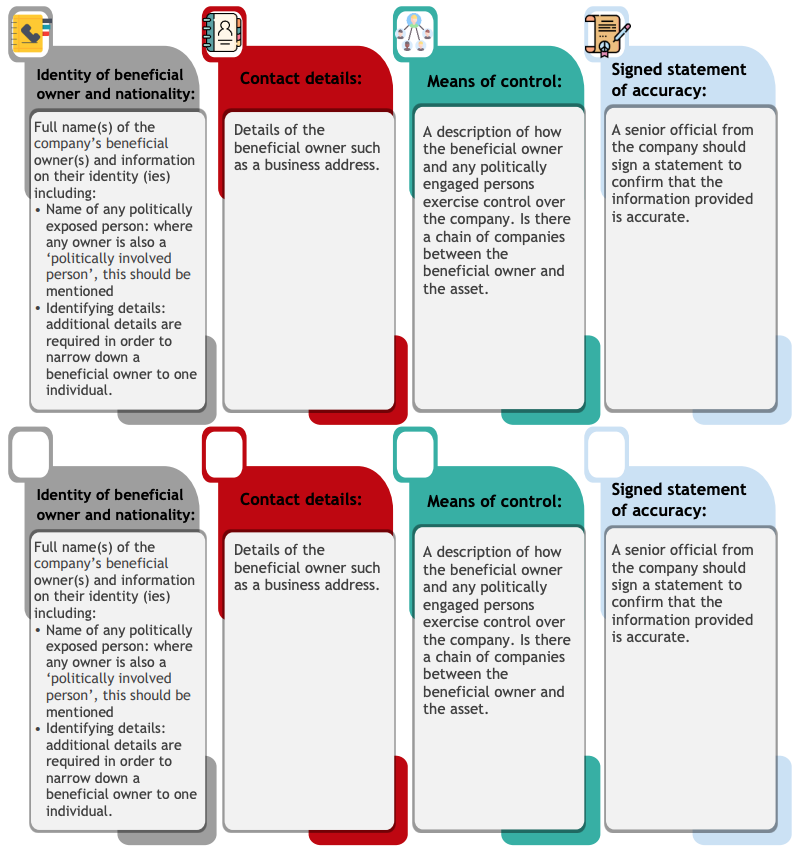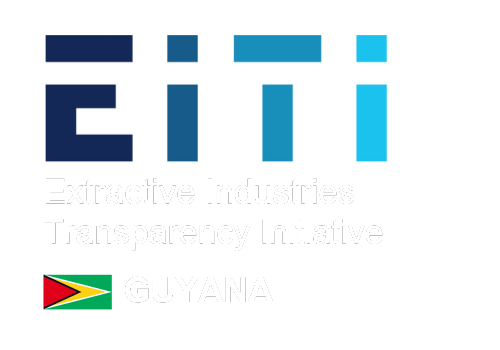The 2019 EITI Standard recommends that implementing countries maintain a publicly available register of the beneficial owners of the corporate entity(ies) that apply for or hold a participating interest in an exploration or production oil, gas or mining license or contract, including the identity(ies) of their beneficial owner(s), the level of ownership and details about how ownership or control is exercised. The 2019 EITI Standard requires that, as of 1 January 2020, implementing countries request, and companies publicly disclose, beneficial ownership information.
On 18 July 2018, the Guyana Multi-Stakeholder Group published a roadmap for disclosing beneficial ownership information. The Multi-Stakeholder Group has established milestones and deadlines on the roadmap.
Definition of beneficial ownership in Guyana’s legal framework
The definition of “beneficial ownership” should not necessarily be linked to share ownership. Owning more than a certain percentage of shares certainly gives a meaningful indication of beneficial ownership. However, in identifying the beneficial owner, the focus should also be on contractual and informal arrangements. The Anti-Money Laundering and Countering the Financing of Terrorism (Amendment) (No.2) Act (2015)224 which amends section 2 (1) of the original Act (2009) provides a clear definition of beneficial ownership in Guyana as being: “ownership by a natural person or persons who ultimately exercise individually or jointly voting rights representing at least twenty-five percent of the total shares, or otherwise have ownership rights of a legal entity; or ownership by a natural person or persons who ultimately owns or controls a customer or the person on whose behalf a transaction is being conducted and includes those persons who exercise ultimate effective control over a legal person or arrangement.” Section 535 of the Companies Act (1998)225 states that: “Beneficial interest or beneficial ownership includes ownership through a trustee, legal representative, agent or other intermediary.” Additionally, the AML/CFT Act (2009)226 defines a politically exposed persons as follows: “any individual who is or has been entrusted with prominent public functions on behalf of a state, including a Head of State or of government, senior politician, senior government, judicial or military officials, senior executives of state-owned corporations, important political party officials, including family members or close associates of the politically exposed person whether the person is resident in Guyana or not”.
Beneficial ownership declaration
The 2019 EITI Standard requires that, as of 1 January 2020, implementing countries request, and companies publicly disclose, beneficial ownership information. The Deeds and Commercial Registries Authority (DCRA) is responsible for maintaining a register of companies in which it keeps the name of any legal entity that is incorporated in accordance with section 470 of the Companies Act (1998). The authority published a declaration on beneficial ownership to be completed by companies: https://dcra.gov.gy/application-forms/ Companies included in the reconciliation scope were also requested to report information on their beneficial owners (BO). Data reported by companies were included in Annex 6 of this report.
The companies selected in the GYEITI reconciliation scope have been requested to submit a declaration on beneficial legal ownerships. Accordingly, the following information were requested from reporting extractive entities:

Details of beneficial ownership declared by extractive entities included in the reconciliation scope is presented in Annex 6 to this report. Companies included in the reconciliation scope declared data on beneficial ownership. However, some BO data were not comprehensively completed such as the number of shares, number of voting rights, date when interests were acquired, and information if the company was publicly listed or not.
